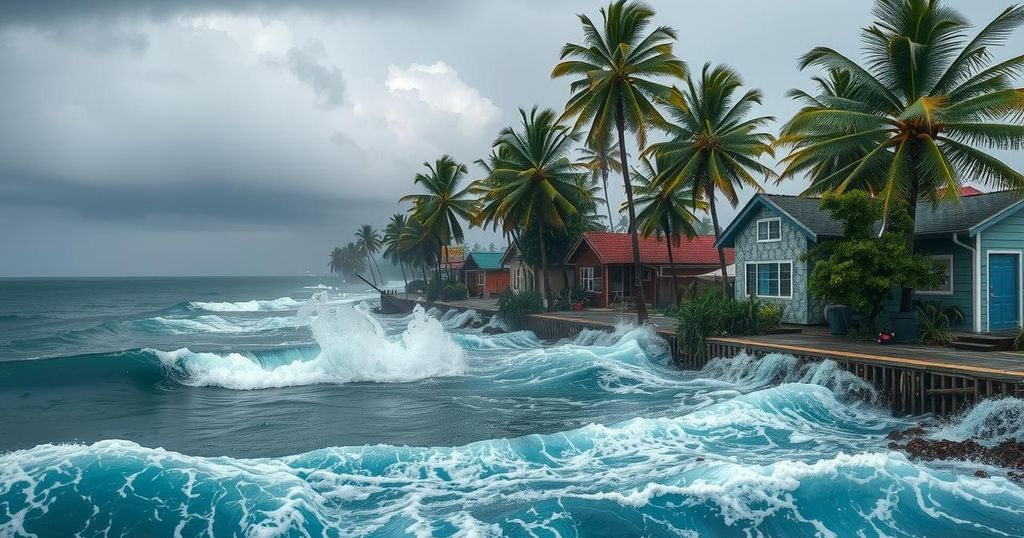Cyclone Chido: Unraveling the Interplay of Climate Change, Migration, and Conflict
Cyclone Chido, an intense tropical cyclone, impacted Mayotte and Mozambique in December 2023, leaving significant infrastructural damage and affecting approximately 70% of Mayotte’s population. The cyclone’s intensity is linked to climate change, with rising ocean temperatures contributing to its ferocity. Factors such as conflict in Mozambique and high undocumented migration in Mayotte worsened the disaster’s impact, highlighting the critical need for integrated disaster preparedness and response strategies.
Cyclone Chido, classified as an intense tropical cyclone and comparable to a category 4 hurricane in the Atlantic, struck Mayotte and Mozambique during December 2023. Generating wind gusts nearing 155 mph, it significantly impacted the infrastructure of both regions. As a result, current estimates indicate that approximately 70% of Mayotte’s population has been affected, with over 50,000 homes damaged in Mozambique. This series of cyclones has intensified due to rising ocean temperatures attributed to climate change, marking a concerning trend in the Indian Ocean’s storm activity.
The ongoing conflict in Mozambique and the rising number of undocumented migrants in Mayotte have exacerbated the impacts of Cyclone Chido. The precarious living conditions faced by many, particularly the migrants who represent more than half of Mayotte’s population, have made disaster responses difficult. Many residents, fearing deportation, avoided shelters, and inadequate infrastructure has hindered effective disaster management.
In Mozambique, the dual threats of conflict and cyclones have created dire living conditions. The provinces impacted by Chido have seen a rise in displacement, with over half a million people currently living in transient camps. The early arrival of Cyclone Chido in the cyclone season intensified the challenges, preventing adequate preparations and the timely provision of relief resources.
Climate change is projected to continue intensifying storms such as Chido, with scientists asserting that warmer ocean temperatures contribute to their severity. Rapid attribution studies revealed that ocean temperatures in Chido’s path were 1.1°C warmer than they would have been without climate change, leading to increased wind speed and decreased chances of effective early warning systems. Furthermore, with cyclones becoming slower and more intense, the risk of flooding, brought about by heavy rain, is expected to rise in the future.
Recent observations indicate that the Indian Ocean is experiencing an alarming increase in cyclone intensity, primarily due to climate change-induced rising ocean temperatures. Tropical cyclones pose significant risks to populations, especially those in vulnerable situations, such as undocumented migrants and residents of conflict-affected regions. The intersection of climate change, migration, and conflict greatly complicates disaster preparedness and response efforts, reflecting a pressing need for research on resilience-building strategies.
The impact of Cyclone Chido exemplifies the interplay of climate change, migration, and conflict, with adverse effects on vulnerable populations. As the frequency and intensity of tropical cyclones increase, it is essential to consider these interrelated factors when developing strategies to mitigate future disasters. Enhancing resilience in communities affected by such storms necessitates a comprehensive understanding of social dynamics alongside environmental changes.
Original Source: theconversation.com




Post Comment